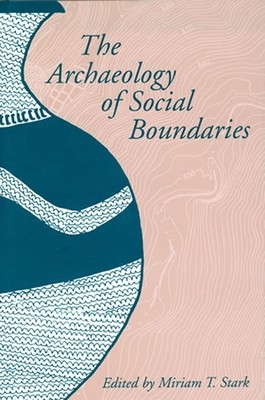
- We will send in 10–14 business days.
- Publisher: Smithsonian Institution Scholarly Press
- Year: 2015
- Pages: 382
- ISBN-10: 1935623788
- ISBN-13: 9781935623786
- Format: 15.2 x 22.6 x 2.3 cm, softcover
- Language: English
- SAVE -10% with code: EXTRA
The Archaeology of Social Boundaries (e-book) (used book) | bookbook.eu
Reviews
Description
Mapping the boundaries between ancient societies through studies of ethnicity, migration, or economic systems is of perennial interest to archaeologists, who typically have taken two divergent approaches. North American archaeologists have studies formal variation in the style of finished products, while the French tradition, exploring links between cognition and technical choice, has focused on how variation occurs during the manufacturing process.
Fourteen contributors examine an array of media -- from ceramics and personal ornaments to architecture and site structure -- in small-scale societies and apply methods from both sides of the Atlantic to explore how technical choices made in the creation of everyday objects can both reflect and define social boundaries. In chapters on pre-historic and historic societies that range from North America to Africa to Oceania, the authors suggest that variation in technical systems corresponds more closely than stylistic variation does to the boundaries between groups. They also address the question of whether modern concepts of ethnicity can be translated into archaeological terms. The Archaeology of Social Boundaries demonstrates that the search for social boundaries in material culture patterning can benefit from the study of both technological and stylistic qualities. By uniting two disparate intellectual traditions, this book contributes to a growing archaeological theory of material culture.EXTRA 10 % discount with code: EXTRA
The promotion ends in 19d.19:37:55
The discount code is valid when purchasing from 10 €. Discounts do not stack.
- Publisher: Smithsonian Institution Scholarly Press
- Year: 2015
- Pages: 382
- ISBN-10: 1935623788
- ISBN-13: 9781935623786
- Format: 15.2 x 22.6 x 2.3 cm, softcover
- Language: English English
Mapping the boundaries between ancient societies through studies of ethnicity, migration, or economic systems is of perennial interest to archaeologists, who typically have taken two divergent approaches. North American archaeologists have studies formal variation in the style of finished products, while the French tradition, exploring links between cognition and technical choice, has focused on how variation occurs during the manufacturing process.
Fourteen contributors examine an array of media -- from ceramics and personal ornaments to architecture and site structure -- in small-scale societies and apply methods from both sides of the Atlantic to explore how technical choices made in the creation of everyday objects can both reflect and define social boundaries. In chapters on pre-historic and historic societies that range from North America to Africa to Oceania, the authors suggest that variation in technical systems corresponds more closely than stylistic variation does to the boundaries between groups. They also address the question of whether modern concepts of ethnicity can be translated into archaeological terms. The Archaeology of Social Boundaries demonstrates that the search for social boundaries in material culture patterning can benefit from the study of both technological and stylistic qualities. By uniting two disparate intellectual traditions, this book contributes to a growing archaeological theory of material culture.

Reviews